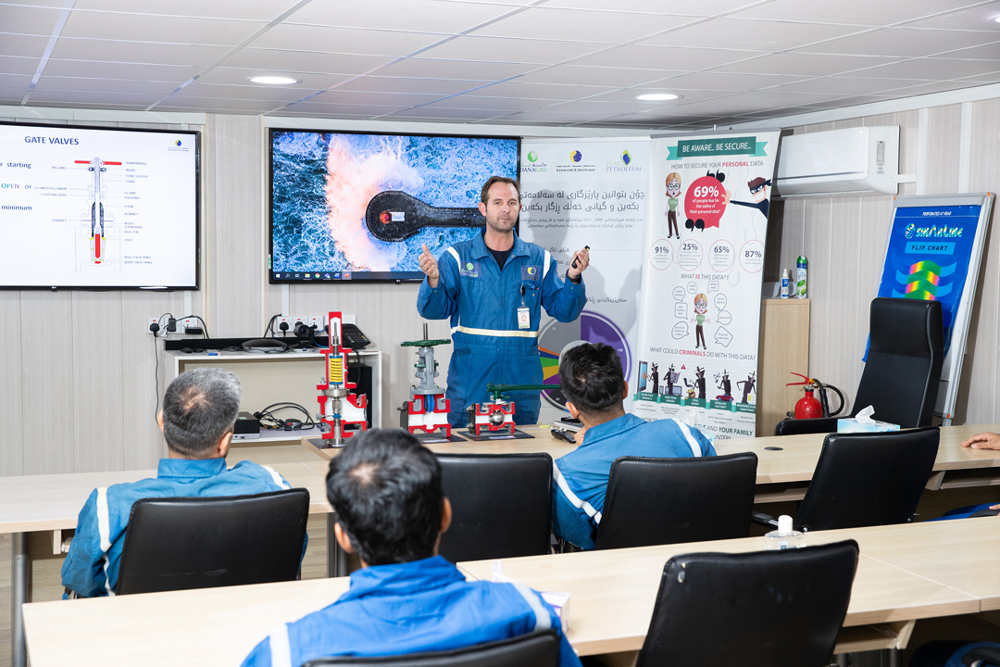
Sustainability Framework
We have incorporated sustainability considerations into all our strategic planning, long-term objectives, and day-to-day operations. The resulting sustainability framework reflects the outcomes of the stakeholder engagement and materiality process. The material sustainability issues that we identified fall under one of our four main sustainability pillars: delivering on our promise; our commitment to the environment; ensuring our teams’ health and safety; and empowering our teams.
Delivering on Our Promise
- Engagement with local communities, social performance initiatives
- Anti-Corruption, bribery
- Information security
- Achieving financial targets, market presence
- Compliance with regulations
- Risk management
- Customer satisfaction, marketing
- Localisation and job creation
- Procurement practices
Our Commitment to the Environment
- Greenhouse gas emissions
- Transition to lower carbon energy market
- Energy use, energy efficiency
- Water management
- Waste management
- Biodiversity
- Effluent management
- Research and development, and innovation
Ensuring Our Team’s Health and Safety
- Security practices
- Process safety, asset integrity and emergency preparedness
- Occupational safety
Empowering Our Teams
- Training and capacity building of employees and local contractors
- Diversity and human rights
- Internal engagement
Case Study: Commitment to WEF Stakeholder Capitalism Metrics

In 2020, Crescent Petroleum became an early supporter of the World Economic Forum Stakeholder Capitalism Metrics initiative, which was launched at the WEF 2020 Annual Meeting in Davos. We joined 120 of the world’s largest companies to support efforts to develop a core set of common metrics and disclosures on non-financial factors for their investors and other stakeholders.
These core and expanded set of Stakeholder Capitalism Metrics and disclosures are intended to align companies’ mainstream reporting of environmental, social, and governance (ESG) indicators and to help track their contributions towards the SDGs on a consistent basis. The metrics are deliberately based on existing standards, to accelerate convergence of indicators among the leading private standard-setters and to effect greater comparability and consistency in ESG reporting and disclosure.
The project, developed within the International Business Council (IBC), a community of over 120 global CEOs, seeks to improve how companies measure and demonstrate their sustainability efforts, towards building a more sustainable relationship with our planet. In Appendix C of this report, we have referenced Crescent Petroleum’s alignment with WEF’s Stakeholder Capitalism Metrics.
